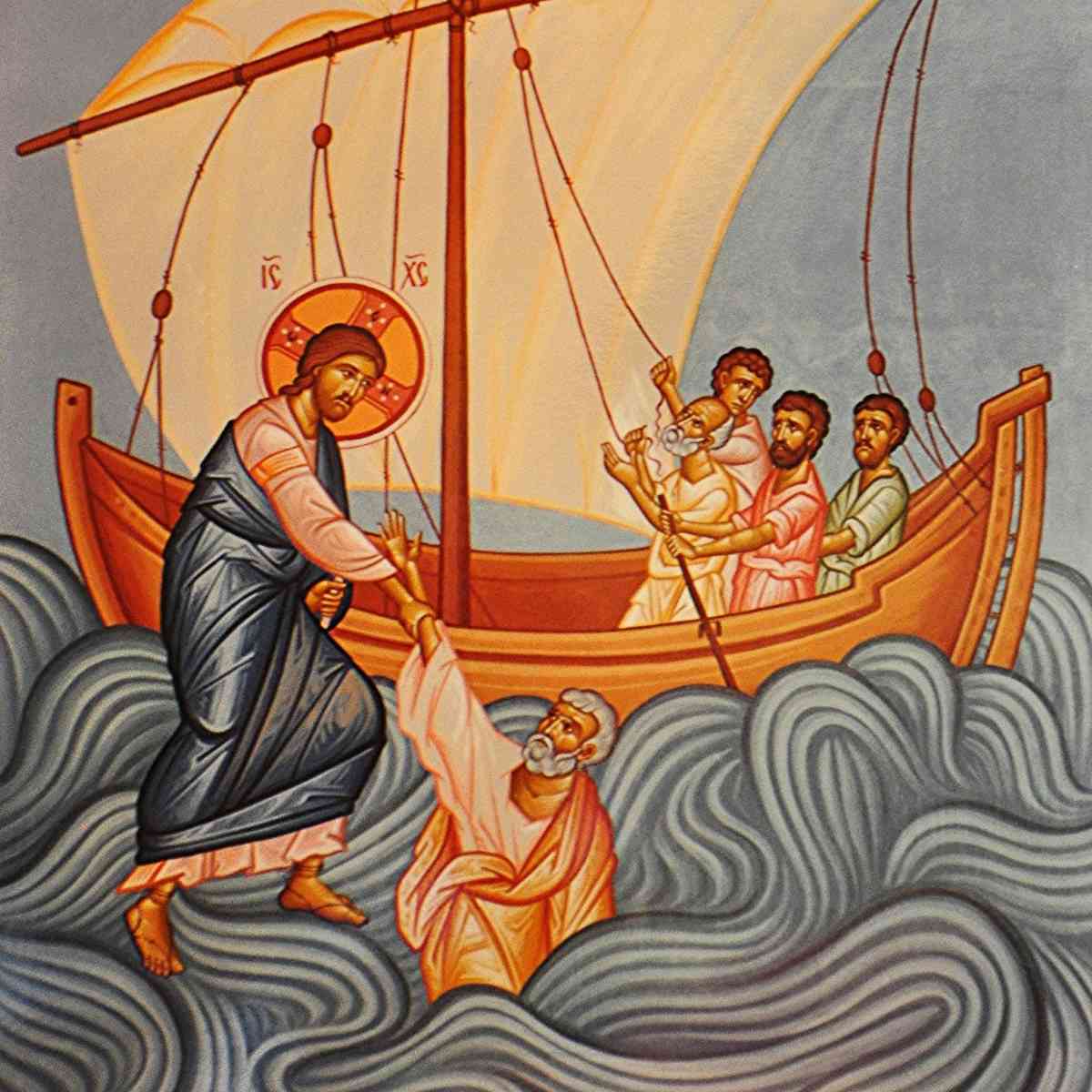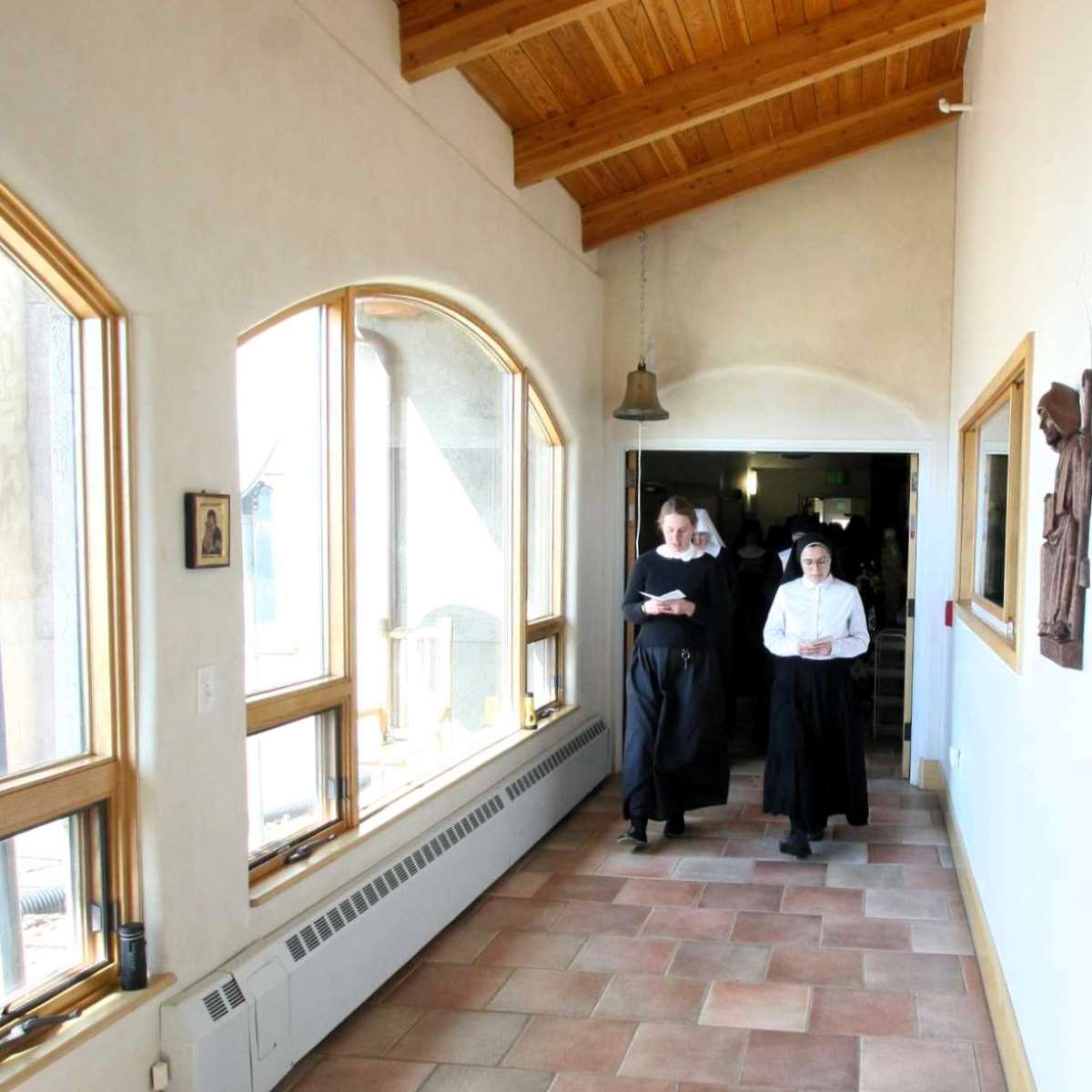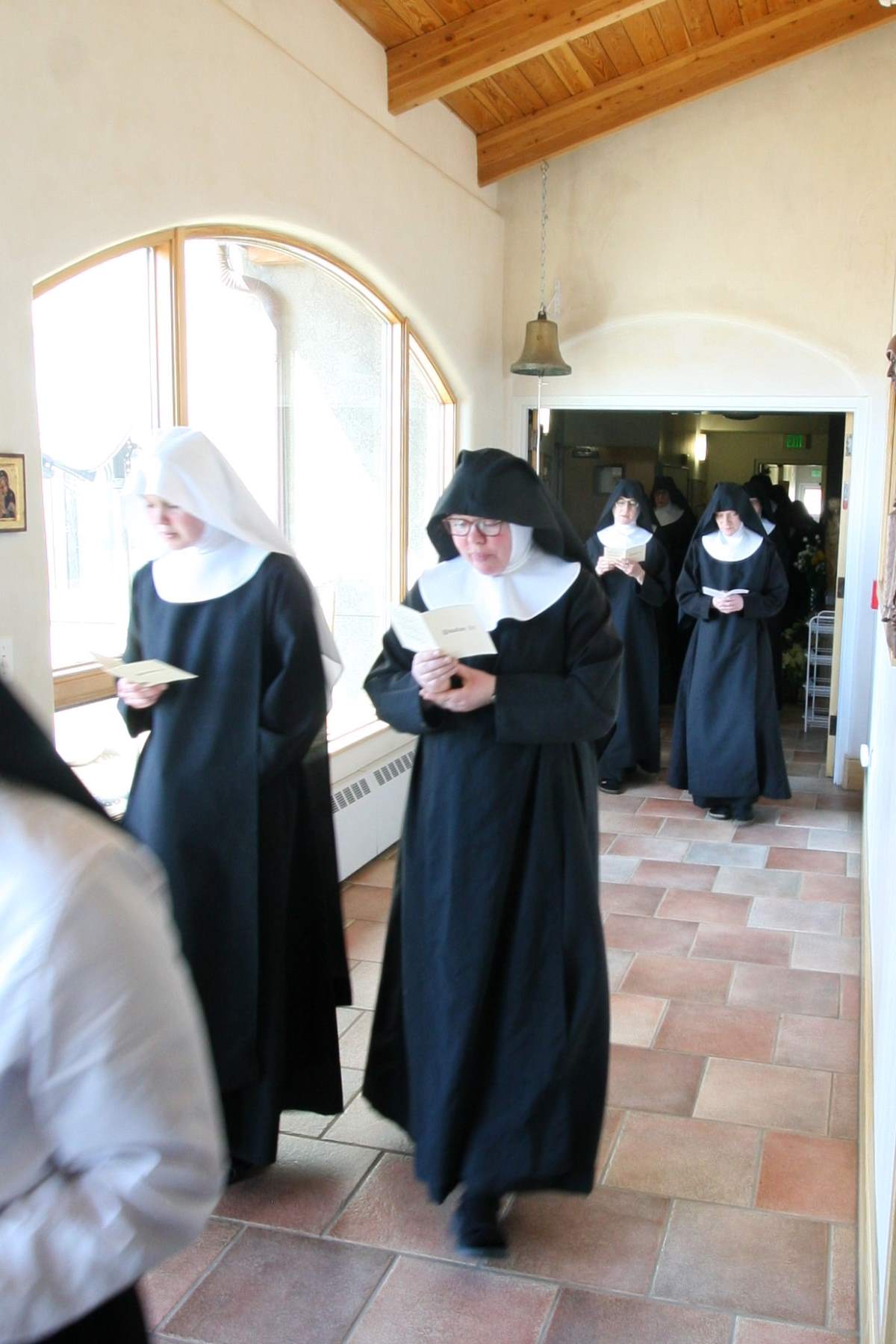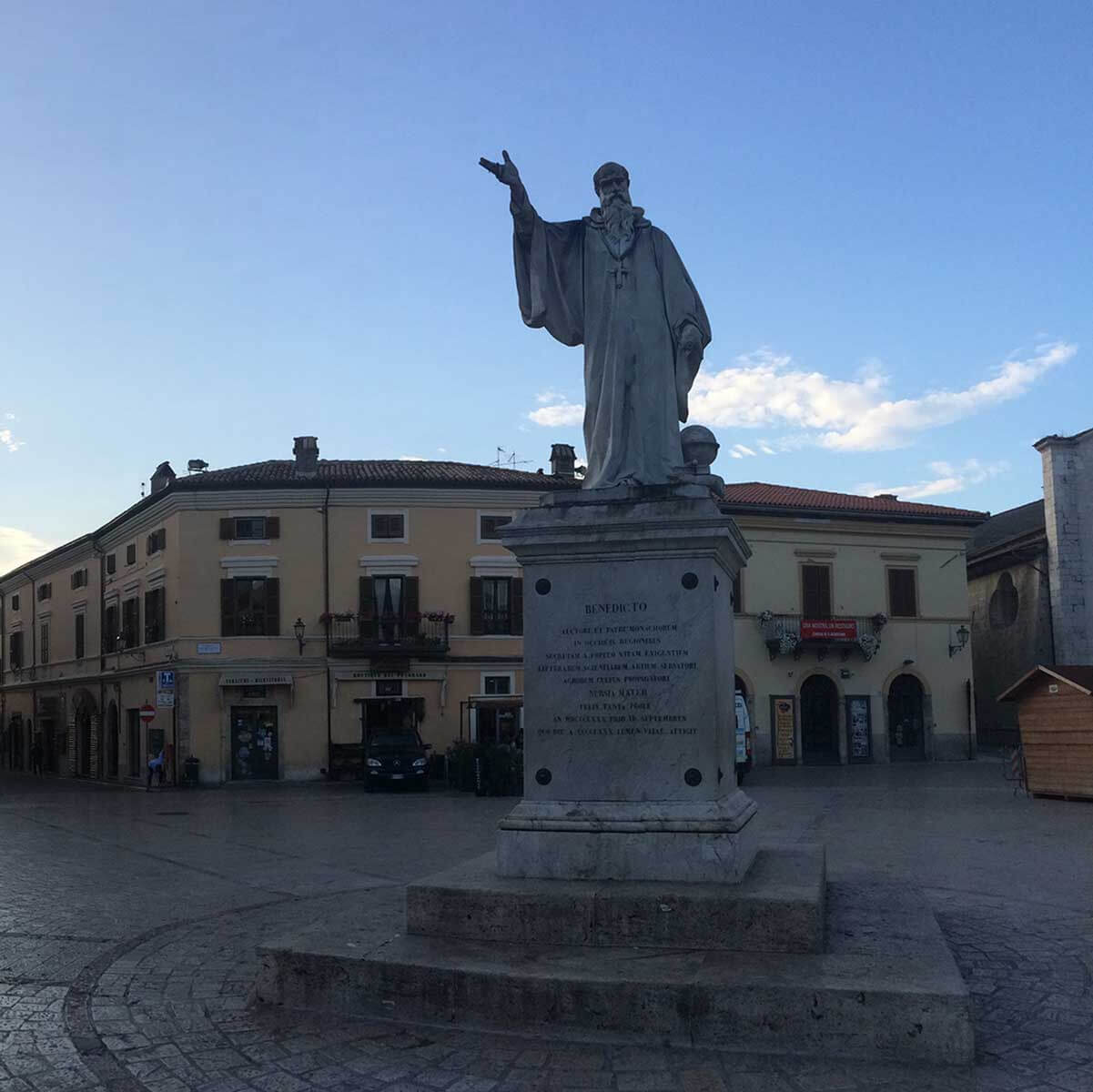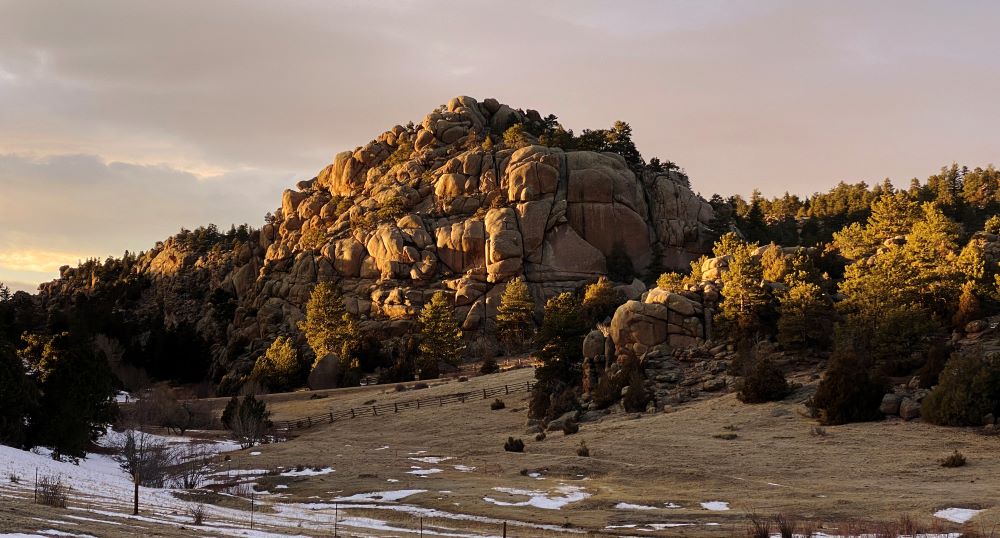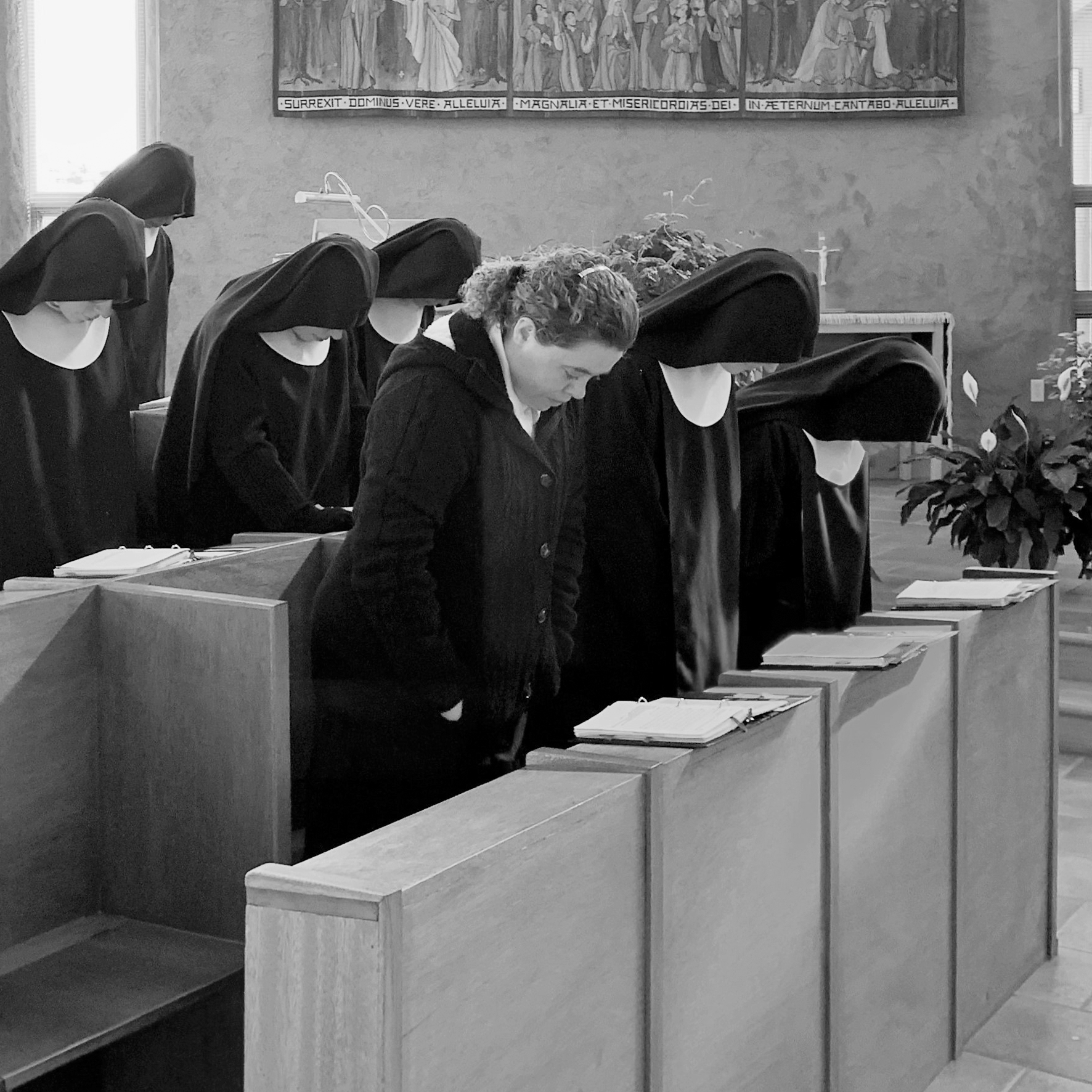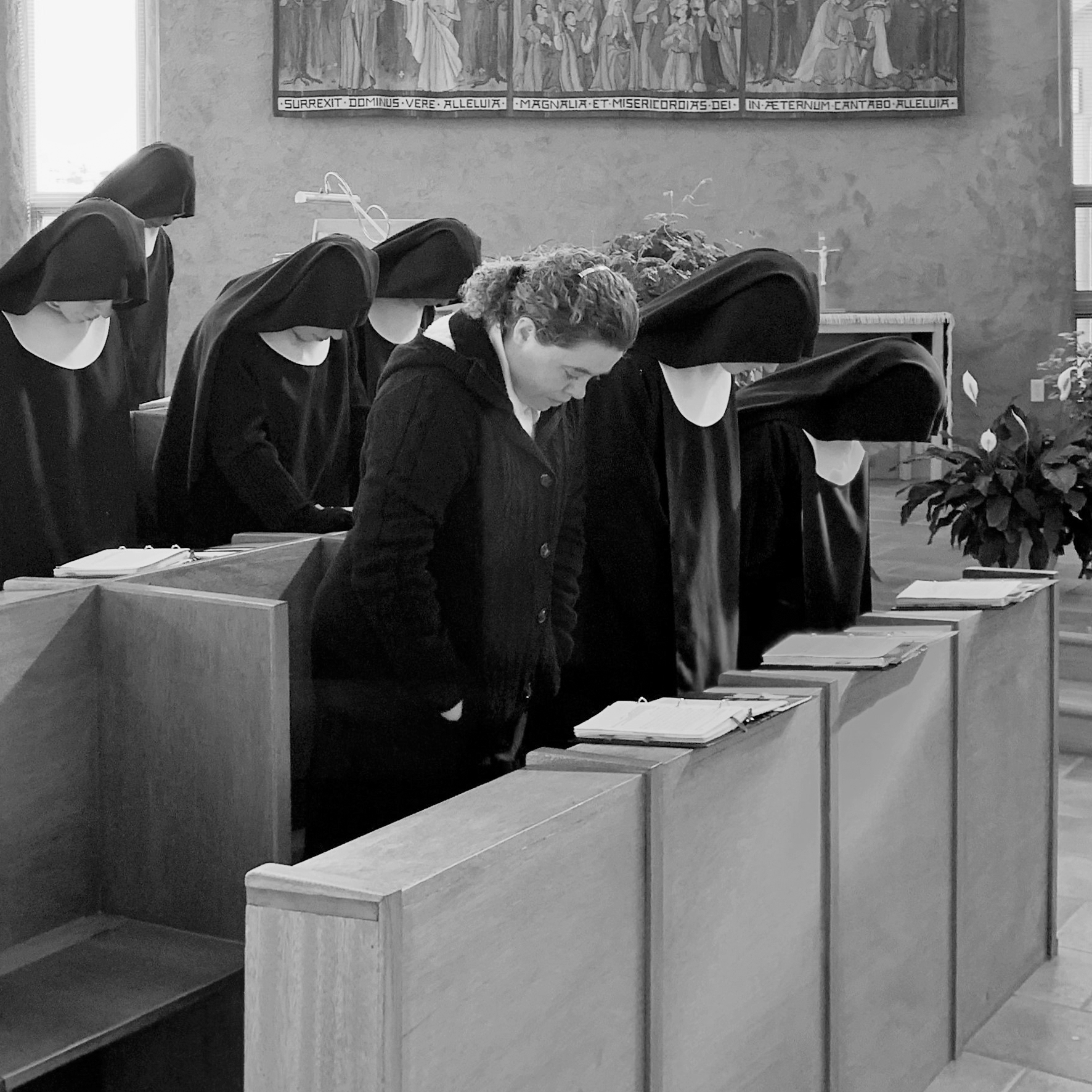A reflection by our Abbess, Mother Maria-Michael Newe, OSB
In the book of Ezekiel, we hear about the “wonderful stream” that is shown to Ezekiel by an angel, which gets measured out several times and keeps getting deeper and deeper, until Ezekiel can no longer cross it because he would have to swim (Ezekiel 47:3-5). We then hear how the river empties into the salt waters of the sea, which it makes fresh (Ezekiel 47:8), and that the source of these waters is none other than the sanctuary itself (Ezekiel 47:12). This image reminds me of the line in the hymn we sing on the Solemnity of the Immaculate Conception: “Sinners, we honor thy sinless perfection/Fallen and weak, for thy pity we plead/Grant us the shield of thy sovereign protection/Measure thine aid by the depth of our need.” Measure thine aid by the depth of our need. Isn’t that the picture we get in Ezekiel? The depth of sin in the world seems to grow greater and greater, but God’s mercy cannot be outdone. If we ask, He will teach us to swim—in His mercy. He will never abandon us. Ever. We can count on His mercy when we cry out, truly, from the depth of our being. He will save us.
The depth of our sin is never too great for Him. After Christ’s passion and death on the cross, when a lance was thrust into His side and “blood and water flowed out” (John 19:34), the floodgates of mercy were opened. And His mercy continues to pour out onto the earth, and it is ours for the taking. But it is a choice to put out our arms to mercy, which is not always easy to do, because it requires so much humility to admit that we need it. But if we think of ourselves as little children, crying, “Pick me up! Save me!” because we can’t get over the chasm on our own, then we are among those souls who are open and ready to receive His mercy. As we approach the Solemnity of the Sacred Heart of Jesus, may we all ask for this gift as little children, confident in the love of our Father, and His desire to forgive our every fault, and to carry us in His arms, very close to His tender heart.
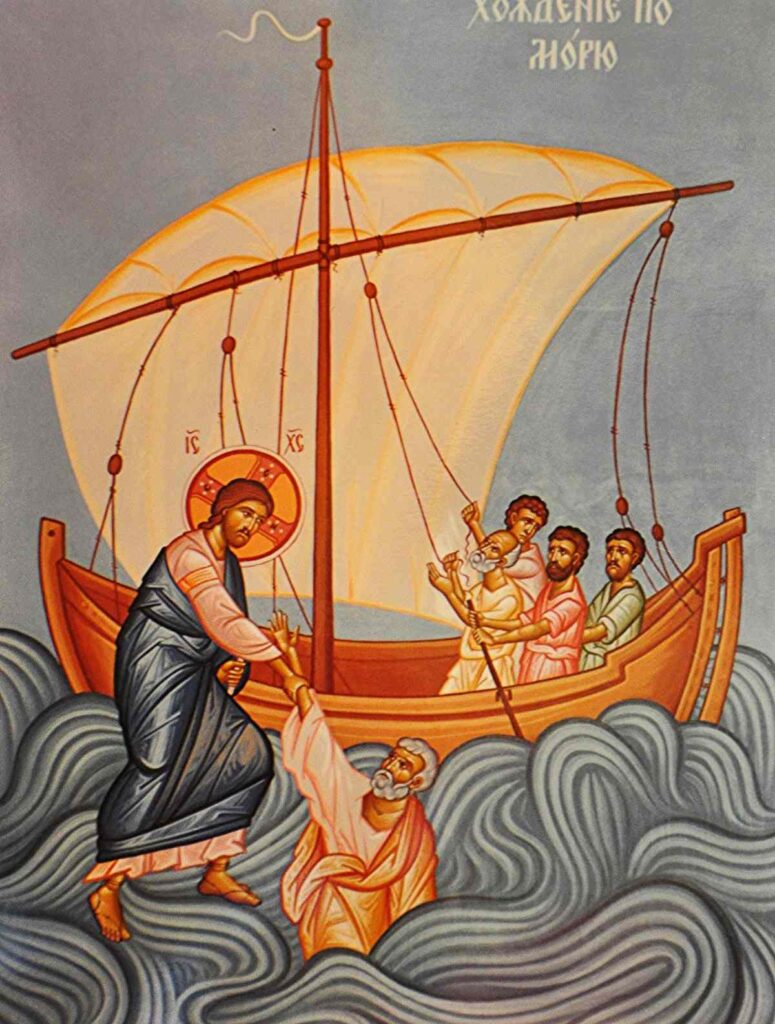
Public Domain icon of Jesus saving St. Peter from downing
[Flickr / Creative Commons Attribution-ShareAlike 2.0 Generic license]

